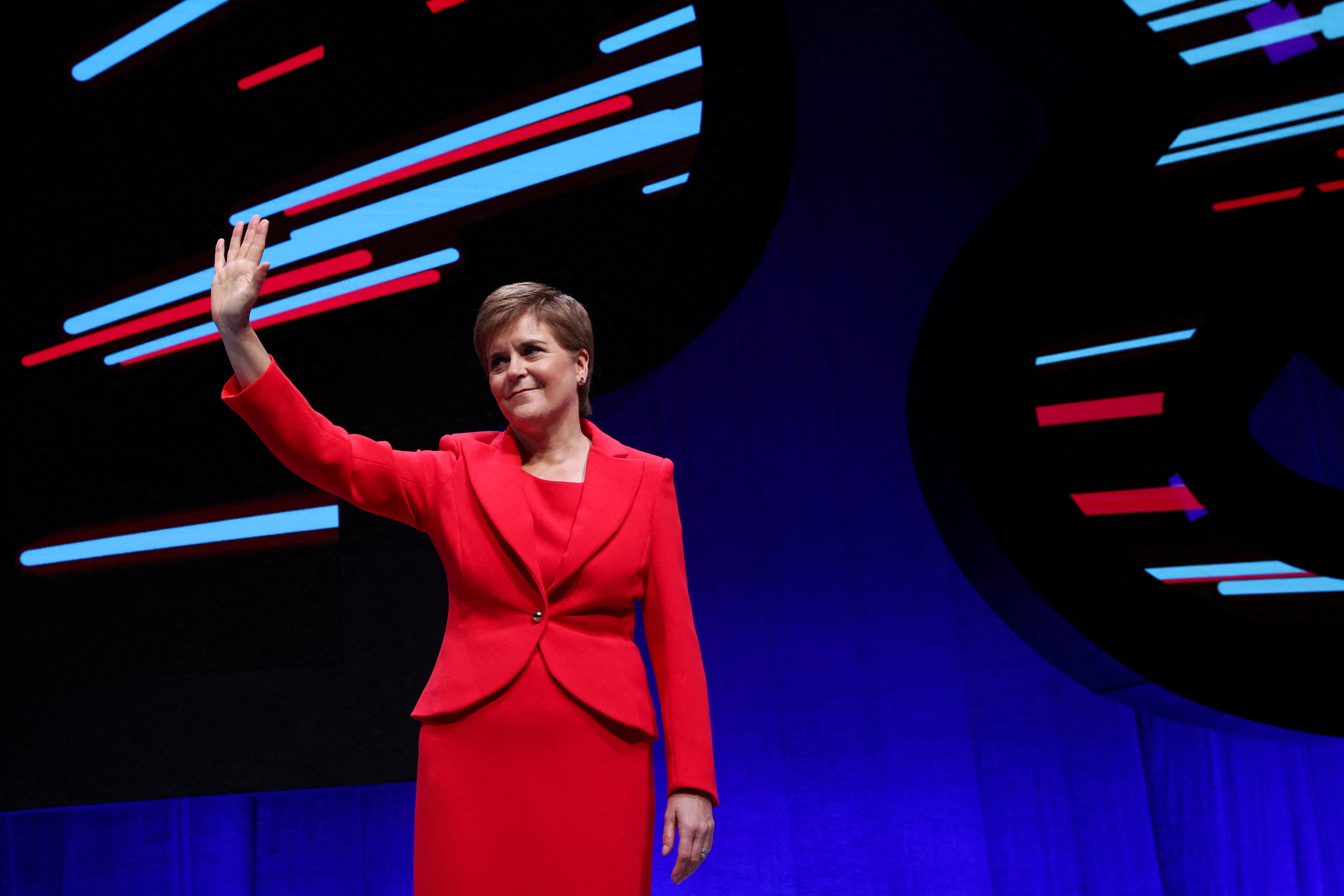What We’re Watching: Sturgeon's resignation, NATO-Nordic divide, India vs. BBC, Tunisia’s tightening grip
Nicola Sturgeon steps down
Scotland’s First Minister Nicola Sturgeon announced on Wednesday that she is stepping down. She’s been in the role for over eight years, having taken power after the failed 2014 independence referendum. Speaking from Edinburgh, Sturgeon said she’d been contemplating her future for weeks and knew "in my head and in my heart" it was time to go. A longtime supporter of Scottish independence, Sturgeon was pushing for a new referendum, which was rejected by the UK’s top court late last year. In recent weeks, she and her colleagues had been debating whether the next national election in 2024 should be an effective referendum on independence. Sturgeon will stay in power until a successor is elected — likely contenders include John Swinney, Sturgeon’s deputy first minister, Angus Robertson, the culture and external affairs secretary, and Kate Forbes, the finance secretary.
Turkey divides Finland and Sweden
On Tuesday, NATO and other Western officials publicly acknowledged for the first time that Finland and Sweden might join the transatlantic alliance at different times, a notable public admission that negotiations with Turkey over Sweden’s NATO accession haven’t gone well. Neither Nordic country can become an alliance member without unanimous support from all existing members, and NATO-member Turkey’s President Recep Tayyip Erdoğan has a beef with Sweden. Erdogan is angry that Sweden’s government has provided asylum for dozens of Kurdish leaders he considers terrorists, and it didn’t help when a right-wing activist burned a Koran outside the Turkish embassy in Stockholm, an act Sweden’s government treated as an offensive act of free speech that’s protected by law. Erdogan may also see a political opportunity to boost his reelection chances by defying European leaders in general and Sweden in particular. (Turkey’s elections are expected in May or June.) For NATO, Finland’s membership is arguably the more urgent priority. Though Sweden monitors occasional Russian naval intrusions into its territorial waters, it’s Finland that shares an 810-mile land border with Russia. European leaders hope that, if Erdogan wins his election, a deal can be cut in the coming months to allow Sweden to join the club.
India takes aim at BBC
Indian tax officials raided the BBC’s local offices on Tuesday in what they said was a probe into the British broadcaster’s business practices. But the move comes amid a broader government campaign to censor a new BBC documentary about Prime Minister Narendra Modi’s role in anti-Muslim riots that killed more than 1,000 people in the state of Gujarat while he was governor in 2002. Modi has always denied stoking – or neglecting – the violence, and India’s Supreme Court has reached a similar conclusion. In the weeks since the doc aired in the UK, Modi’s government has cracked down swiftly in India, blocking it from being viewed online in the country, halting screenings at Indian universities, and forcing both Twitter and YouTube to remove it locally. Modi has often used internet laws to muzzle criticism, and tax officials have searched critical media outlets before. Last year the subcontinent slipped eight points to 150 out of 180 countries in the Reporters Without Borders Press Freedom Index. How will the UK government respond?
Tunisia crackdown intensifies
Robocop is not messing around now. Tunisian President Kais Saied, whose monotone style earned him that nickname, has unleashed a ferocious crackdown on his critics and opponents in recent days. On Tuesday, sweeping arrests ensnared the leader of Ennahda, an opposition Islamist movement that once held power in the country. Saied, a constitutional lawyer who was elected as an outsider candidate in 2019, has led a massive overhaul of Tunisia’s government, diminishing the power of the legislature and the courts. He says he’s trying to make government more decisive and efficient in the only country that emerged from the Arab Spring with a democracy. His critics say he is plunging the country of 12 million right back into an authoritarian winter. See our full profile of Saied here.
